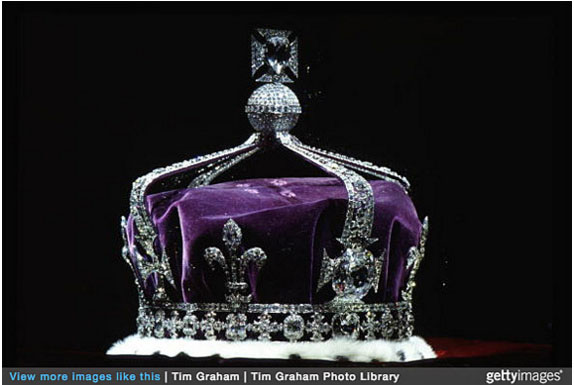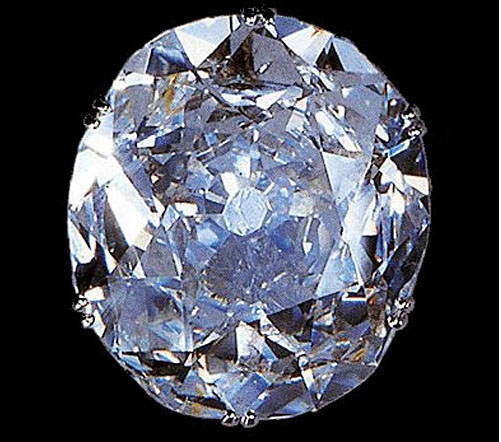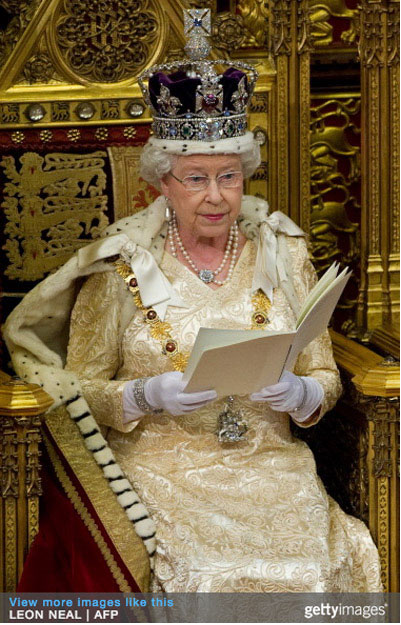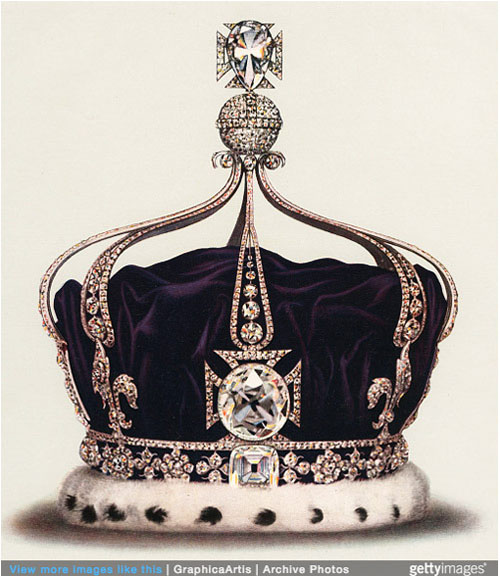Indian Group Sues Britain's Queen Elizabeth Ii For Return Of The 105-carat ‘koh-i-noor’ Diamond
The famous 105-carat "Koh-i-Noor" diamond, which has been part of the British Crown Jewels for 165 years, soon may be plucked from the Crown of Queen Elizabeth and returned to India — if a group of Bollywood stars succeed in their lawsuit against the UK.
An Indian group calling itself "Mountain of Light" (the literal translation of "koh-i-noor") is demanding the return of the near-perfect gemstone with deep historical roots in the Indian sub-continent.
The gem was unearthed at India's Kollur Mine in the 13th century. In its rough form, the stone weighed 793 carats — about the size of a hen's egg.
Over the centuries, the diamond passed through the hands of numerous invaders, including Persian ruler Nadir Shah, who gave the precious stone its current name in the 1700s. In 1850, it was presented to Queen Victoria by the last ruler of the Sikh Empire, the 13-year-old Tulip Singh.
The claimants are arguing that the generous "gift" was delivered under dubious circumstances. Today, the Koh-i-Noor is estimated to be worth in excess of $150 million.
“The Koh-i-Noor is not just a 105-carat stone, but part of our history and culture and should undoubtedly be returned,” said Bollywood star Bhumicka Singh.
The Mountain of Light group timed its lawsuit to coincide with India Prime Minister Narendra Modi's first official visit to the UK, during which he will meet the Queen at Buckingham Palace.
RT.com reported that the litigants are basing their legal argument on Britain's Holocaust (Return of Cultural Objects) Act of 2009, which gives national institutions the authority to return to their rightful owners objects that were unlawfully acquired.
Parties on both sides of the dispute have chimed in with passionate statements.
“Colonization did not only rob our people of wealth," said Indian businessman David De Souza, "it destroyed the country’s psyche itself. It brutalized society, traces of which linger on today in the form of mass poverty, lack of education and a host of other factors.”
Countered British historian Andrew Roberts in a comment to the Daily Mail, "Those involved in this ludicrous case should recognize that the British Crown Jewels is precisely the right place for the Koh-i-Noor diamond to reside, in grateful recognition for over three centuries of British involvement in India, which led to the modernization, development, protection, agrarian advance, linguistic unification and ultimately the democratization of the sub-continent.”
This is not the first time India has made a claim on the Koh-i-Noor. Back in 2013, British Prime Minister David Cameron rejected the notion of the diamond returning to India, saying that he did not believe in "returnism."
This past August, we reported on the efforts of British lawmaker Keith Vaz, who said it was time for the Queen Mother to return the Koh-i-Noor diamond to India because it was a sore symbol of Britain’s colonial past.
“What a wonderful moment it would be, if and when Prime Minister Modi finishes his visit, he returns to India with the promise of the diamond’s return,” said Vaz.




